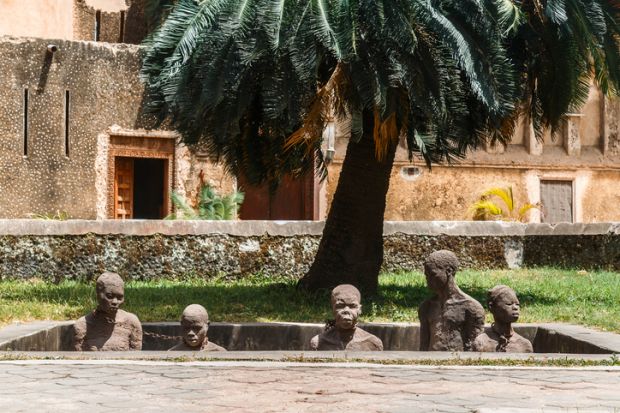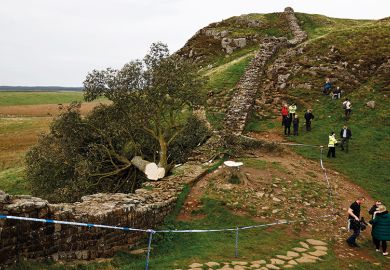A union has condemned plans to sack the first British person of African heritage to become a professor of history in the UK as “an attack on black academia”.
The University of Chichester is suspending recruitment to its MRes in the history of Africa and the African diaspora, putting Hakim Adi – who founded the degree in 2017 – at risk of redundancy.
Nearly 5,000 people have signed a petition protesting against the cuts, which were first reported by The Guardian.
The University and College Union (UCU) said that, at a time when just 1 per cent of professors in the UK are black, the Chichester course played a vital role in training students of African and Caribbean heritage as historians.
“The University of Chichester’s decision to axe this crucial course and put Professor Adi at risk of redundancy is nothing less than an attack on black academia,” said UCU general secretary Jo Grady.
“It is no surprise that only 1 per cent of UK professors are black when a university like Chichester is willing to sack the UK’s first African-British professor of history and shut down a course created to train black academics.
“Chichester’s management urgently needs to show it is committed to widening access into higher education and reverse this awful decision.”
Professor Adi told The Guardian that there were “too few students of African and Caribbean heritage; that’s why the course was set up. The aim was to have a course that could make a difference. It has made a difference.”
A Chichester spokeswoman said she could not comment on employment matters but said courses that “fail to consistently recruit sufficient students are simply not viable for the university to continue to offer”.
“The university supported the launch of the MRes in the history of Africa and the African diaspora in 2017, recognising this important subject matter. However, despite extensive marketing of the programme across all major postgraduate channels and social media, the course has always recruited a relatively small number of students,” the spokeswoman said.
“Since the programme launched in 2017, the university has invested nearly £700,000 into the delivery of this programme but has only received £150,000 of tuition fees. The university has thus supported this programme financially over the six-year period but has had to come to the decision to suspend the programme.”
The spokeswoman said that while it was “understandable that the suspension of the MRes programme may be seen as a cause for concern by some observers”, other universities offered similar courses.
Register to continue
Why register?
- Registration is free and only takes a moment
- Once registered, you can read 3 articles a month
- Sign up for our newsletter
Subscribe
Or subscribe for unlimited access to:
- Unlimited access to news, views, insights & reviews
- Digital editions
- Digital access to THE’s university and college rankings analysis
Already registered or a current subscriber? Login








